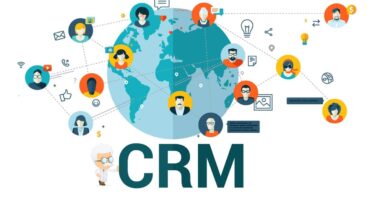In the intricate web of global commerce, logistics plays a pivotal role, serving as the unseen force that keeps the wheels of supply chains turning smoothly. From the manufacturing plant to the end consumer, every product undergoes a journey facilitated by the logistics industry. In this blog post, we will delve into the multifaceted world of logistics, exploring its significance, challenges, and the innovations shaping its future.
The Essence of Logistics:
Logistics is more than just the movement of goods from point A to point B. It encompasses a comprehensive set of activities, including transportation, warehousing, inventory management, and distribution, all working seamlessly to ensure the efficient flow of products. The primary goal of logistics is to minimize costs, reduce lead times, and optimize resources while meeting customer demands.
Key Components of Logistics:
- Transportation: The backbone of logistics, transportation involves the movement of goods across various modes such as road, rail, sea, and air. Each mode comes with its own set of advantages and challenges, and effective logistics management often involves a combination of these modes to achieve optimal results.
- Warehousing: Warehouses serve as the nodes in the supply chain network where goods are stored, sorted, and prepared for distribution. Modern warehouses are equipped with advanced technologies like automation and robotics to enhance efficiency and accuracy in inventory management.
- Inventory Management: Striking the right balance between demand and supply is crucial in logistics. Inventory management systems utilize data analytics and forecasting to optimize stock levels, preventing stockouts and reducing holding costs.
- Information Flow: In the digital age, information is as crucial as the physical movement of goods. Real-time tracking, data analytics, and communication technologies enable stakeholders to make informed decisions, enhancing overall supply chain visibility.
Challenges in Logistics:
- Globalization: As businesses expand globally, logistics faces the challenge of managing increasingly complex supply chains, navigating diverse regulations, and coping with longer transportation routes.
- Sustainability: With environmental concerns rising, the logistics industry is under pressure to adopt eco-friendly practices. This includes the use of alternative fuels, energy-efficient transportation modes, and sustainable packaging.
- Technology Integration: While technology brings efficiency, its rapid evolution poses challenges in terms of adaptation and integration. Logistics providers must continuously invest in and update their systems to stay competitive.
The Future of Logistics:
- Automation and Robotics: The rise of automation and robotics is transforming warehouses and distribution centers, improving efficiency, accuracy, and speed in order fulfillment.
- Internet of Things (IoT): IoT enables real-time monitoring and tracking of goods, vehicles, and equipment, enhancing visibility and optimizing decision-making processes.
- Blockchain: The decentralized nature of blockchain technology ensures secure and transparent transactions, reducing fraud and enhancing traceability in the supply chain.
Conclusion:
In conclusion, the world of logistics is dynamic, evolving, and indispensable to the global economy. From the movement of raw materials to the delivery of finished products, logistics is the silent hero that ensures businesses operate seamlessly. As technology continues to advance and the world becomes more interconnected, the logistics industry will play an increasingly vital role in shaping the future of global trade.




